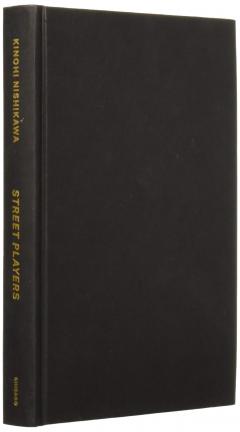The uncontested center of the black pulp fiction universe for more than four decades was the Los Angeles publisher Holloway House. From the late 1960s until it closed in 2008, Holloway House specialized in cheap paperbacks with page-turning narratives featuring black protagonists in crime stories, conspiracy thrillers, prison novels, and Westerns. From Iceberg Slim's Pimp to Donald Goines's Never Die Alone, the thread that tied all of these books together--and made them distinct from the majority of American pulp--was an unfailing veneration of black masculinity. Zeroing in on Holloway House, Street Players explores how this world of black pulp fiction was produced, received, and recreated over time and across different communities of readers. Kinohi Nishikawa contends that black pulp fiction was built on white readers' fears of the feminization of society--and the appeal of black masculinity as a way to counter it. In essence, it was the original form of blaxploitation: a strategy of mass-marketing race to suit the reactionary fantasies of a white audience. But while chauvinism and misogyny remained troubling yet constitutive aspects of this literature, from 1973 onward, Holloway House moved away from publishing sleaze for a white audience to publishing solely for black readers. The standard account of this literary phenomenon is based almost entirely on where this literature ended up: in the hands of black, male, working-class readers. When it closed, Holloway House was synonymous with genre fiction written by black authors for black readers--a field of cultural production that Nishikawa terms the black literary underground. But as Street Players demonstrates, this cultural authenticity had to be created, promoted, and in some cases made up, and there is a story of exploitation at the heart of black pulp fiction's origins that cannot be ignored.
Categories:
Language:
Engleza
Publishing Date:
2019
Publisher:
Cover Type:
Hardcover
Page Count:
288
ISBN:
9780226586885
Dimensions: l: 16cm | H: 24cm | 2.3cm | 536g
Unavailable
Price applicable only to online purchases!
Free Gift Wrapping!
Free shipping over 150 RON
You can return it in 14 days
You got questions? Contact Us!

